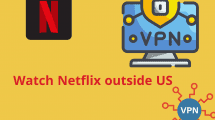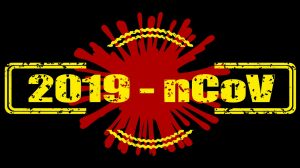Investigative journalism plays a crucial role in democratic societies by bringing hidden information to light. Let’s explore what it involves and why it matters.
What is Investigative Journalism?
Investigative journalism digs deep to uncover facts that people in power wish to keep secret. n Reporters spend weeks, months or years relentlessly gathering documents, data and sources to reveal the truth around:
Government, corporate or political corruption Scandals Fraud Harms to public health/safety Environmental violations Human rights abuses Cold case mysteries More
The goal is exposing concealed wrongdoing that impacts communities.
Why It Matters
Think of journalists as society’s watchdogs – monitoring centers of power and influence that could do public harm if left unchecked and untransparent. We rely on ethical reporting that:
Holds leaders and institutions accountable Gives voice to the disenfranchised Informs civic discourse with facts Checks the powerful from abusing authority Keeps citizens vigilant against risks to rights/freedoms Anchors democracy by combating disinformation with truth
Quality investigative work gives everyday people insight needed to impact change around issues affecting us all.
What Skills Make Great Investigative Reporters?
Dogged determination. Investigations follow winding paths, expecting dead ends before hardwon breakthroughs. Beyond persistence, top investigative journalists have:
Sharp instincts detecting lies and patterns of wrongdoing early Networking talents persuading insiders to confidentially leak telling documents Data analysis chops to crack massive document dumps and derive meaning
Logic and reasoning abilities to untangle complex connections and incentives Integrity, fairness and an ability to admit mistakes
It’s high-stakes work revealing well-protected secrets.
Examples of Famous Investigative Stories
Here are just a few standout investigations that toppled powerful leaders, prompted sweeping reforms, and brought pivotal issues into national focus:
Ida Tarbell revealed how Standard Oil monopolized the Gilded Age oil industry through shady railroad rebates. This built support for antitrust regulations. Upton Sinclair exposed horrific health violations and labor exploitation in meatpacking plants in his classic novel “The Jungle.” Public backlash led to pivotal food safety laws. Seymour Hersh uncovered the My Lai Massacre and other hidden U.S. military atrocities abroad during the Vietnam War, informing anti-war sentiment. Bob Woodward and Carl Bernstein dug into what connections the White House had to a break-in at the Watergate Hotel in what became known as the Watergate Scandal. Their stories in The Washington Post prompted President Nixon’s resignation. The Boston Globe’s Spotlight investigative team reported how Catholic officials covered up child sex abuse for decades. Their Pulitzer-winning coverage in 2002 fueled global reckoning and reform around predatory clergy.
Such reporting remains in the public’s interest today at all levels of government.
How Investigators Unearth Hidden Truths
So where do watchdogs even start unraveling secrets closely held by powerful interests? Steps include:
Choosing a target Seasoned journalists identify signs something seems amiss that impacts the public behind closed doors. Say a politician’s lifestyle seems suspiciously lavish for their salary. Or communities near a factory have elevated cancer rates.
Asking probing questions “What did you know, and when did you know it?” Reporters persistently ask tough questions on the record. Which documents, data and sources could substantiate facts? Who benefits? Constant scrutiny itself can pressure targets to come clean.
Studying records and data Investigators dig through paper trails – court documents, coroner reports, tax statements, archives, regulatory filings. Data analysis reveals statistical red flags like anomalously high executive bonuses alongside misconduct settlements.
Cultivating informants Whistleblowers risk much leaking confidential documents exposing corruption from inside institutions. Reporters earn their trust off the record.
Connecting dots Spotting inconsistencies helps surface lies. Reporters corroborate accounts, validate timelines, track money trails, document harm done, and contextualize within broader
systemic issues. Find the receipts.
Publishing substantiated findings Meticulously editing articles with editors, fact-checkers and legal reviewers ensures fair, accurate reporting that cannot get dismissed over technicalities.
Catalyzing change Once shocking investigations publish, public pressure and scrutiny pile on leaders now answering tough questions under media spotlights and legislative inquiries. Demands for transparency, reform, regulation and resignations soon follow.
Hard-fought transparency forces action improving society.
Why True Investigations Face Threats
For their truth-telling risks toward power, investigative journalists endure constant intimidation and interference:
Defamation lawsuits Arrests and detainments Surveillance chilling sources Violence and assassinations Funding cuts at struggling news outlets Official obstruction stonewalling information requests
Autocrats especially despise transparency. According to the Committee to Protect Journalists, global oppression of independent media surged during the Trump presidency alone. Hundreds of professional reporters sit imprisoned worldwide as censorship worsens.
All while investigations grow more complex, expensive and vulnerable to online disinformation campaigns undermining public consensus reality
Preserving Democracy’s Watchdogs
But silencing or manipulating the press means giving the powerful license to freely cause harm out of public sight. Democracies die in secrecy and lies. That’s why we must support ethical investigative reporting that:
Verifies information meticulously before publishing Corrects errors openly and honestly Respects off-the record agreements with whistleblower sources Seeks comment thoroughly from all parties involved Strives for fair portrayal avoiding stereotypes or needless harm Prioritizes truth and justice over partisan ends
Quality journalism remains society’s best defense against corruption, inequality and exploitation. We ignore this watchful Fourth Estate at our own peril.
Conclusion
For all its glory exposing wrongs righting rights, investigative reporting bears immense responsibility too. At its root lies deep commitment to truth in service of vulnerable people – not cherry-picked facts fitting an ideology or gotcha scandal for fame. Demanding transparency makes democracy breathe. But it relies on public discernment between watchdog motives earning trust, versus attack dogs better resisted.
Frequently Asked Questions
Q: What’s the difference between investigative journalism vs. regular news reporting?
A: Investigative journalism proactively digs deeper into concealed issues the powerful wish to hide, demanding transparency and accountability around harmful wrongdoing hidden from public view.
Q: What personal traits make a good investigative journalist?
A: Key strengths include persistence seeing stories through dead ends, integrity building source trust, analysis talents detecting lies in data, connecting dots revealing lies, reasoning clearly and admitting errors openly/swiftly.
Q: How much research goes into investigative stories?
A: Successfully bringing hidden harms into public understanding often takes upwards of six months to a year rigorously gathering, authenticating and contextualizing secret documents, data patterns, confidential witness accounts and more.
Q: What news organizations are known for hard-hitting investigations?
A: Historically acclaimed investigative teams producing Pulitzer-winning revelations about abuses of power include The New York Times, Washington Post, Wall Street Journal, ProPublica, Boston Globe Spotlight, Guardian, 60 Minutes and local nonprofits.
Q: How can citizens support investigative journalism?
A: Read, subscribe, donate, advocate against arrests/threats, demand transparency reforms, call out disinformation, fund local newsrooms through community foundations, submit tips securely, enhance media literacy, and vote responsibly resisting authoritarianism and censorship worldwide.
































Add Comment